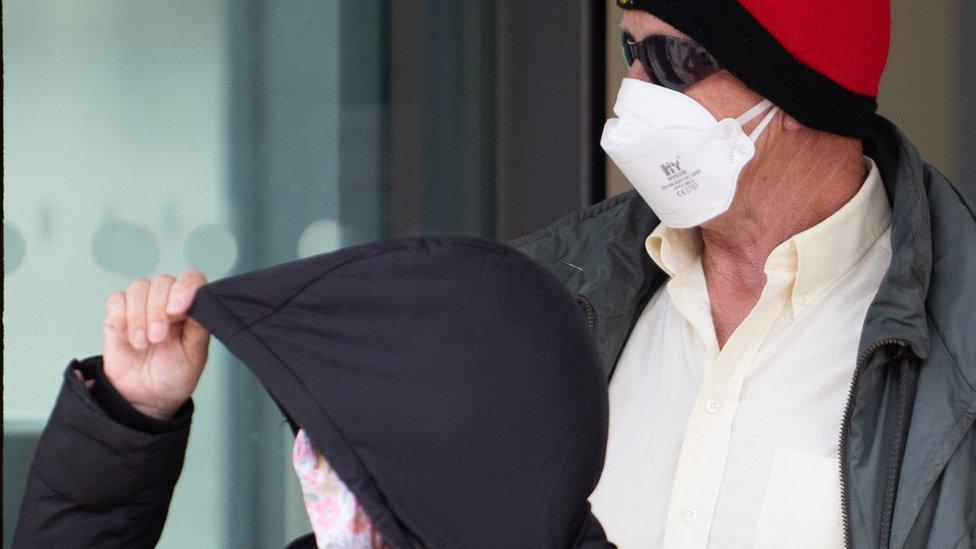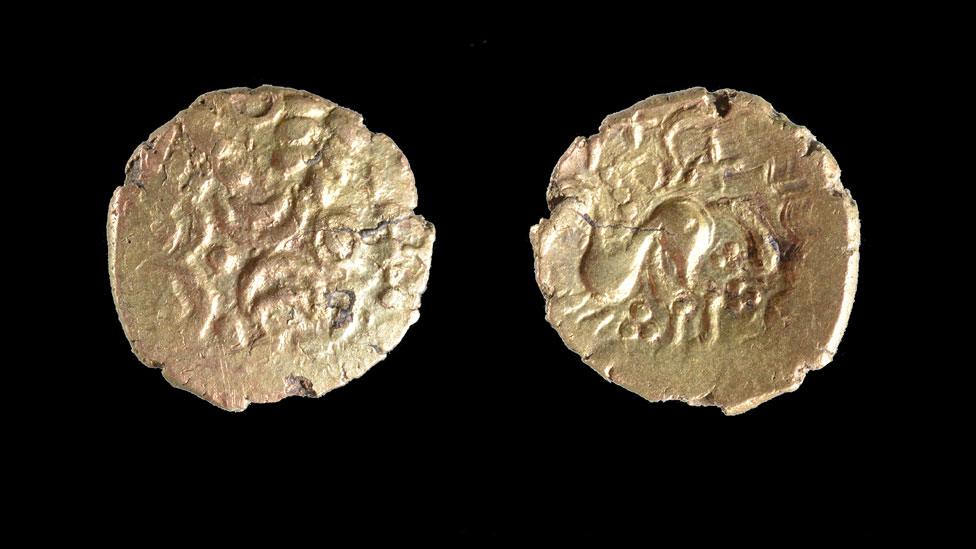Iron Age treasure: Man's metal detector to be destroyed over coin theft
- Published

Shane Wood admitted failing to notify the coroner about his find and of the theft of 23 of the coins
A man who found more than 900 Iron Age coins will have his metal detector destroyed as punishment for keeping 23 of them as a "memento".
Shane Wood, 62, found the treasure while on a walk in Chelmsford, Essex, in September last year.
Wood admitted the theft of 22 Staters and one quarter Stater, worth an estimated £9,850 to £12,350.
He was sentenced at Chelmsford Magistrates' Court to 200 hours' unpaid work on an 18-month community order.
Wood, of Hanningfield Road, Great Baddow, Chelmsford, also pleaded guilty to failing to notify the coroner of the find under the Treasure Act 1996, and was ordered to pay £200 to the court.
The court heard Wood, an "avid birdwatcher", saw a feather fall from a buzzard and noticed a gold item in the field where it landed.
Wood went home to fetch his metal detector and made the discovery, placing the coins into a bin liner.
'Unusual and almost unique'
Prosecutor Ashley Petchey said the hoard of 933 Iron Age gold Staters was "likely to be if not the largest, then the second-largest such find in Britain".
He said Wood handed most of them over to the landowner but kept 23 for himself.
Mr Petchey said Wood did not notify the coroner of the find directly, but instead told a man who used the land who in turn notified the landowner who said he would contact the finds liaison officer.

Shane Wood (right) arrived at Chelmsford Magistrates' Court with his girlfriend Kim Holman (left) who was also charged with failing to notify the coroner of a find
Prosecutors said Wood did not have permission to be metal detecting on the land, though he said he believed he did.
Police became involved and officers who searched Wood's house found 23 Iron Age coins.
Simon Nicholls, mitigating for Wood, described the case as "very unusual and almost unique".
Mr Nicholls said Mr Wood's girlfriend, Kim Holman, had put some coins on top of the fridge or freezer and Wood "found them and the mistake that he made was that he thought he would keep them as a memento".
Holman, of Chadwell Heath, Romford, East London, admitted failing to notify the coroner of the discovery of one Iron Age gold Stater.
She was fined £160 and ordered to pay a further £139 in costs and a victim surcharge.
Magistrate Ian Fuller said: "Detectorists should go about their business in the correct way."
He said that theft of artefacts was "not just from the landowner or the Crown, but it's depriving the public of interesting archaeological information".

Find BBC News: East of England on Facebook, external, Instagram, external and Twitter, external. If you have a story suggestion email eastofenglandnews@bbc.co.uk
Related topics
- Published28 March 2021
